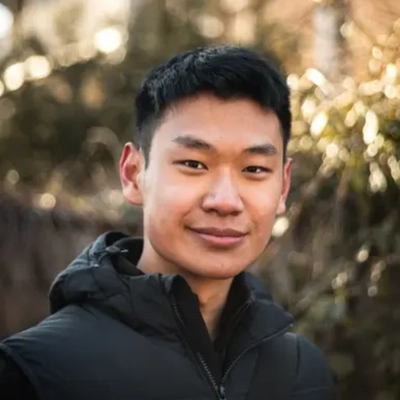10 Predictions On How AI Will Shape the Future of Content Creation
The future of content creation is on the brink of a revolutionary transformation, driven by the rapid advancements in artificial intelligence. Drawing on insights from industry experts, this article explores ten key predictions that showcase how AI will reshape the landscape of content production and consumption. From enhancing creative workflows to redefining authenticity in an AI-saturated world, these forecasts offer a glimpse into the exciting and sometimes challenging future that lies ahead for content creators and consumers alike.
- AI Enhances Content Creation Through Smart Workflows
- AI Becomes Creative Collaborator in Content Production
- Living Content Adapts to User Interactions
- Human Strategy and Refinement Complement AI Construction
- Content Creators Evolve into AI-Powered Curators
- Ethical AI Use Transforms Artists into Studios
- Answer Engine Optimization Reshapes Content Ranking
- Authenticity Emerges as Key in AI-Saturated Landscape
- Prompt Engineering Shapes Future Content Creation
- Younger Generations Push Back Against AI Content
AI Enhances Content Creation Through Smart Workflows
That's exactly what I do at Caracal.News, so I've had the chance to really dig into how AI can shape content creation. People tend to write off AI content as low quality, but I've found that if you put in the work up front—thinking carefully about prompts, setting up checks, and building research into the process—you can actually get results that are better than most human writers.
For example, when I create a new article, I don't just ask an AI model for a draft and hit publish. I start by researching what people are searching for, then design prompts that pull in the right data and structure for the article. After the draft comes out, the workflow doesn't stop there: I have automated steps to check facts, pull in up-to-date stats, and even generate custom images that fit the topic. If something is off—if the content misses a detail or the image doesn't match—I tweak the prompts or add another check, then run it again.
I'm always looking at the process as a whole. What's the best way to make sure the content is accurate? Where can automation help, and where do I still need a manual review or a final read? Over time, I've realized that the real advantage isn't just using AI, but building a system that guides the AI and catches mistakes before they go live.
The end result is that I can publish more often, keep everything up to date, and still hit a level of detail and quality that would be tough to match by hand. For me, the future of content is all about this kind of process thinking—designing smart workflows that let AI do what it does best, but always with the right checks and structure in place.

AI Becomes Creative Collaborator in Content Production
One compelling prediction: AI will become a creative collaborator, not just a tool.
In the future, content creation won't be "AI-generated" or "human-made" — it will be co-authored. Writers, filmmakers, musicians, and designers will treat AI like a thought partner: brainstorming with it, refining tone and pacing, testing audience reactions in real-time, and even remixing content across formats (e.g., turning a podcast into a visual short, or a blog post into a song).
This shift will democratize creativity — giving rise to voices that might have remained unheard due to limited resources or technical skill — but it will also challenge us to define authorship and authenticity in new ways. The future creator may be part artist, part ethical guide.

Living Content Adapts to User Interactions
AI will shape content creation with hyper-personalized, adaptive content. One of the most exciting shifts I foresee is what I call "living" content. This refers to AI-generated material that evolves in real-time based on how users interact with it.
Consider tutorials that adapt to your skill level on the fly, or marketing content that reshapes itself based on where someone is in the customer journey.
At SmythOS, we've begun experimenting with this kind of adaptive content. Our AI agents draw from first-party data and user behavior to tailor content in real-time, keeping it relevant, fresh, and engaging without manual updates.
I believe this will become the norm. Content will no longer be static; it will respond, adjust, and evolve as users engage with it.
This level of personalization will redefine how we think about content. Content won't just be something consumed, but something experienced.

Human Strategy and Refinement Complement AI Construction
My prediction is that AI will force a permanent division between strategy, construction, and refinement. The strongest content creators already perform these functions, yet they will adapt to specialize in strategy and/or refinement. AI will take over construction, and that is where current creators who, say, write from a brief and then submit that piece for editing will suffer.
We need the human element at the beginning to define goals and determine the most compelling elements of the story. We need the human element at the end to ensure the story is relevant, engaging, and relatable. AI is already competent at the construction in between (current quibbles over em dashes and sentence structure are editorial and can be addressed as the content is refined).
We're already seeing it happen to some degree, although many brands are using AI for factory-level content construction and giving minimal attention to strategy or refinement. There will be a reckoning when brands that want to stand out realize they've neglected the human element, to their brand's detriment.
Those who are willing to invest in strategy and "post-production" led by humans are the ones who will see a sustainable ROI, by producing content that is both useful and memorable.

Content Creators Evolve into AI-Powered Curators
AI is already transforming us from content creators to content curators. I began my journey as a content writer in 2021. At that time, I relied solely on Grammarly to assist with my content creation. It edited my work at a far more basic level than what it can do in 2025.
Since I started, LLMs have emerged as the dominant force in content creation. No longer do I begin with a blank canvas; instead, I provide a set of very detailed instructions for the LLM to create various options from which I can select the one that best meets my needs.
The content "creator" who can best master LLMs and harness their incredible capabilities most efficiently (while not completely losing a sense of creativity (whatever that now means)) will be ahead of others in the field.
My prediction is that many content writers and editors, along with graphic designers, will become obsolete. In their place, content curators will emerge, serving as a one-stop shop for writing, editing, and graphic design. Those who best utilize AI's latest innovations will come out on top. Adapt or get run over.
P.S. I know that there is such a thing as a "content curator." However, in the absence of a better term, this new designation will emerge to define the professional who can most adeptly use AI tools, including LLMs.

Ethical AI Use Transforms Artists into Studios
When BigAI stops stealing content and starts licensing creative work instead (and respecting those people who opt-out), we'll see an embrace of AI by more artists. Rather than thinking of it as just cheating/stealing, we'll use AI as a collaborative acceleration tool to get through research and structure faster so creative people can focus on the ideas and themes more. That cyborg of a brilliant creative using tech to format, market, and schedule their work will turn many people into their own creative studios. But this will never happen if BigAI keeps trying to pretend that exploiting creative work is somehow legal.

Answer Engine Optimization Reshapes Content Ranking
AI isn't just changing how content is created; it's transforming how content ranks.
The most significant change happening right now is the rise of Answer Engine Optimization (AEO). With Google's AI Overviews now live in the US and rolling out globally, traditional SEO is quickly becoming outdated. Where websites once competed for a spot in the top 10 blue links, AI answers now show just two or three citations, often pulled straight into a bolded summary box above the ads. This is happening now, and most businesses haven't caught on yet.
If AI doesn't quote you, you're invisible. That's the most critical insight content creators need to understand today. These overviews aren't built on keyword stuffing or long-tail blog posts. They're built on quotable, specific, high-authority content - often linked directly to a person's name, business, or original framework.
This creates a huge opportunity - for the first time in search history, you don't need to outrank 10 other results. You need to be the one voice the AI chooses to cite.
Prediction: In the next wave of AI-driven content discovery, creators who build their content around being quoted, using their own name, business, frameworks, and insight, will dominate AI Overviews and claim a disproportionate share of traffic.
This means writing for machines and humans in a new way:
- Crafting content with clarity and specificity that can't easily be paraphrased.
- Publishing insightful, well-structured responses to niche, job-based, or location-specific queries.
- Embedding original thinking in formats that AI can't just generalize.
For example, a business that publishes sharp, quote-ready content like "Here's how we gained 10 clients in a week" is more likely to get picked up in an AI Overview than a generic post.
Insight: Ironically, AI may elevate the standard of web content. The days of mass-produced, low-quality filler are numbered. Google's recent core updates and its "Hidden Gems" initiative show that they're prioritizing real expertise and authentic voices—even when powered by AI.
Spam won't scale anymore. But structured insight will.
The window is open - for now. Because the incumbents who won in the SEO era aren't yet winning in AEO, they're still playing by the old rules. That gives agile creators, especially small businesses and experts, a rare edge to stake their claim at the top of AI-generated answers before the landscape gets saturated.
It's not about ranking anymore. It's about being quoted.

Authenticity Emerges as Key in AI-Saturated Landscape
I actually think we are going to see an emergence of content creators pushing back against AI usage for creating content. We are already starting to see a significant percentage of the public - largely including the younger generations - coming out as strongly disliking AI. I imagine we are only going to have more discussions about topics such as artistic creativity and human creativity, and how AI negatively impacts them.

Prompt Engineering Shapes Future Content Creation
I believe we're heading toward a fascinating paradox where AI will make content creation so accessible that authenticity becomes the new scarcity. Currently, anyone can generate a decent blog post or video script in minutes, but I suspect that this will actually make human quirks, personal stories, and genuine expertise more valuable, not less. The content that will stand out won't be the most polished or technically perfect - it will be the material that feels unmistakably human, with all the messiness and personality that comes with it.
What truly fascinates me is how this might push creators to lean into the things AI can't replicate well: lived experiences, cultural context, emotional vulnerability, and those peculiar little insights that come from actually being in the world. I think we'll see a split between efficient, AI-assisted content for information and utility, and deeply personal, human-centered content for connection and meaning. The creators who thrive will likely be those who figure out how to use AI as a research assistant or first-draft generator while keeping their unique voice front and center.

Younger Generations Push Back Against AI Content
None of us knows for sure, but the future is already here.
AI can already write elite content.
AI can already create incredible images.
AI can already produce elite video content.
AI can already mimic voice actors at an alarming level.
My best guess is that the future of content creation belongs to prompt engineers.
Learn how to communicate with AI, and you will never run out of work in this era.


